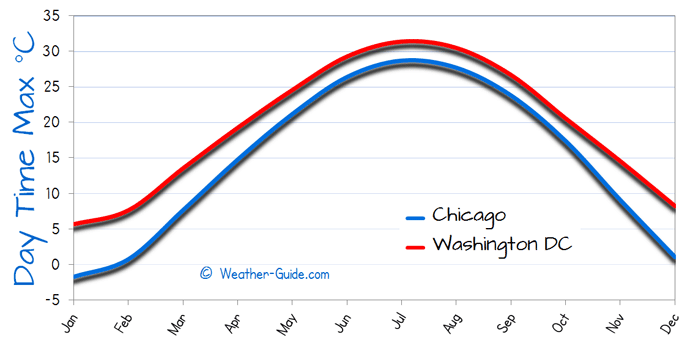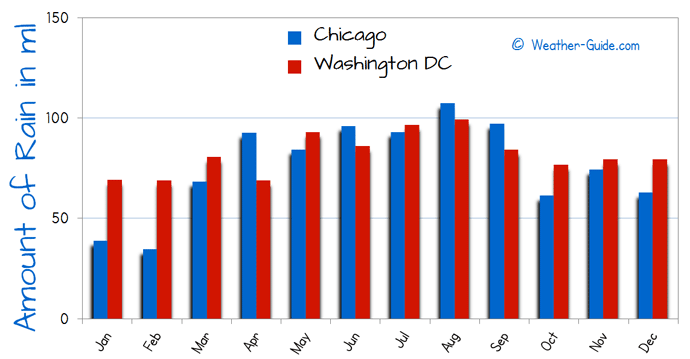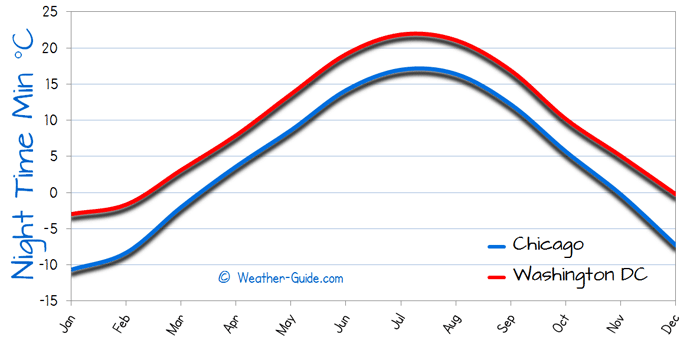Weather-Guide.com
Chicago and Washington Weather Comparison
The following weather charts compare Washington’s weather against Chicago's weather.
For separate weather information about Chicago click here.
The first weather graph displays the day time maximum average temperature, the second shows the average night time minimum and the bar chart indicates the amount of rain per month. These weather charts visually compare the weather of Washington to the weather of Chicago when planning a business trip, holiday or vacation to either.
Maximum Temperature For Washington and Chicago

The monthly average maximum temperature of Chicago compared to Washington
Chicago and Washington Rain Comparison

The monthly average amount of rain that falls on Washington compared to Chicago
Minimum Temperature For Washington and Chicago

The minimum temperature of Chicago compared to Washington average temperature
Washington DC is located in the mid-Atlantic region of the United States, which means that it experiences a variety of weather conditions throughout the year. The city typically has warm summers and cool winters, with occasional periods of extreme heat or cold. Spring and fall are generally mild, but can be unpredictable.
The area is also prone to severe thunderstorms, particularly in the summer months. Tropical storms and hurricanes occasionally impact the region as well, though they are not as common as in other parts of the country. Overall, Washington DC experiences a wide range of weather conditions, making it an interesting place to live.
Chicago's weather is notoriously unpredictable. The city experiences all four seasons, and the transition between them can be sudden and extreme. In the winter, temperatures can dip well below freezing, and strong winds off of Lake Michigan make the cold even more biting. Snow is also common, and Chicagoans often have to contend with treacherous ice storms.
Spring brings some relief from the cold, but it can also be a volatile season, with severe thunderstorms bringing high winds and heavy rains. Summer is usually hot and humid, with temperatures often topping 90 degrees. However, the city sometimes gets a reprieve from the heat in the form of a cool lake breeze. Fall is generally mild, but it can be wet, as heavy rains are not uncommon. As a result of the city's unpredictable weather, Chicagoans have to be prepared for anything.